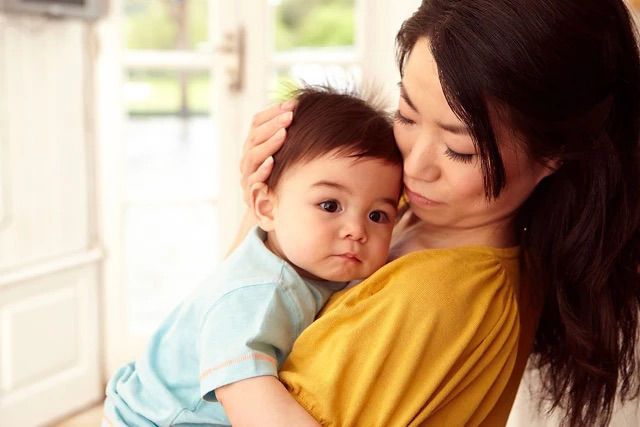If there is a history of food allergy, eczema, hay fever or asthma in your family (one or more of your baby’s first-degree relatives i.e. parent or sibling) then there is a higher risk of your baby developing a food allergy but not always…
Dealing with A Food Allergy

If there is a confirmed history of allergy in the family, it is best to breastfeed your baby. The World Health Organisation recommends exclusive breastfeeding for the first 6 months and continue with the gradual introduction of solids at 6 months for up to 2 years and beyond.
If you are bottle feeding your baby, and you suspect they have an allergy, talk to your healthcare professional. There are specialised formulas available and your healthcare professional will advise you if you need to use one for your baby (cows’ milk allergy). It is recommended that you begin weaning at around 6 months, no earlier than 17 weeks and no later than 6 months of age (FSAI, 2012).
European expert guidance states that potential allergenic foods do not need to be excluded or introduced late to a baby’s diet, even if there is a family history of allergy. When you do introduce potential allergenic foods, give them one at a time and spaced apart to allow you to monitor any adverse reactions to the food.
What types of food are potential allergens?
- Peanuts
- Eggs
- Cows’ milk
- Nuts
- Seeds
- Wheat
- Fish
- Shellfish
If you feel your baby may have an allergic reaction talk to your local doctor for a correct diagnosis before eliminating any foods from your baby’s diet as by doing so, could possibly be depriving your baby of essential nutrients.
Signs of a food allergy in babies
- Eczema or skin irritation particularly on the face
- Swollen lips and eyes
- Wheezing, runny nose, sore throat and watery eyes
- Nausea, vomiting and diarrhoea
- Reactions can also be more severe, breathing difficulties or a drop in blood pressure (anaphylaxis) may be life threatening, if your baby shows these symptoms call emergency services immediately.
Will an allergy affect my baby for his whole life?
It depends on the type of allergy, the majority of babies will grow out of cows’ milk allergy by the age of 3 years, however it is unlikely that babies will grow out of a nut allergy for example. It is important that you monitor your baby’s condition closely with your G.P. and that he is retested occasionally to see if the allergy still exists.
If there is a history of allergy in your family and you are about to begin weaning, contact our team of Nutritionists who will guide you on the right path.
related articles
Read more

Get in touch with our Careline experts
Our nutritionists and feeding advisors are always on hand to talk about feeding your baby. So if you have a question, just get in touch

?ts=1701283138484&dpr=off)

